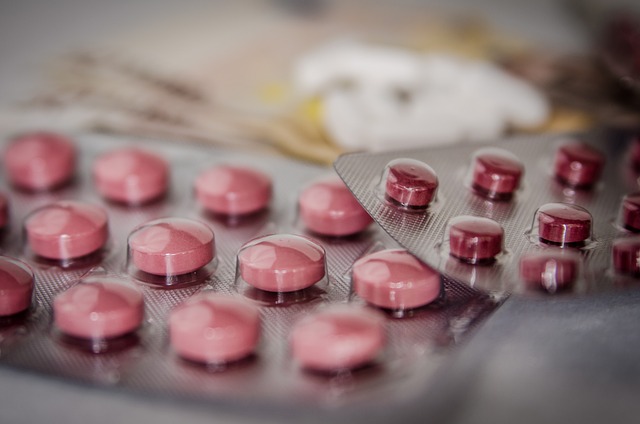Medications Associated with Kidney Disease in 2026
Certain medications commonly used in the United States can affect kidney function, particularly when used long-term or in high doses. Understanding the potential kidney-related risks of drugs such as NSAIDs, antibiotics, and others is important for health awareness and monitoring kidney health over time.

Effects of NSAIDs on Kidney Function
Nonsteroidal anti-inflammatory drugs (NSAIDs) like ibuprofen and naproxen are widely used in the U.S. for pain and inflammation relief. NSAIDs work by inhibiting cyclooxygenase enzymes, which reduces prostaglandin production. Since prostaglandins help maintain dilation of blood vessels in the kidneys, NSAID use can lead to reduced renal blood flow. This mechanism may contribute to increased blood pressure, acute kidney injury (AKI), or progression to chronic kidney disease (CKD), especially in individuals with pre-existing kidney impairment, heart failure, or volume depletion.
The risk of NSAID-induced kidney damage increases with higher doses, prolonged use, or concurrent use with other nephrotoxic agents. Elderly adults and those with comorbidities like diabetes or hypertension are at greater risk. Monitoring kidney function through serum creatinine and estimated glomerular filtration rate (eGFR) can help identify early signs of NSAID-related kidney impairment.
Antibiotics and Nephrotoxicity
Several classes of antibiotics are known to have potential kidney-related side effects, particularly when used in high doses or over extended periods. Aminoglycosides (e.g., gentamicin), vancomycin, and certain beta-lactams have been associated with nephrotoxicity. These effects can manifest as acute tubular necrosis, interstitial nephritis, or glomerular injury.
In the U.S., appropriate dosing adjustments based on kidney function are critical when prescribing these antibiotics to reduce nephrotoxic risk. Monitoring drug levels and kidney function tests during treatment is a common clinical practice to prevent kidney damage. Newer antibiotics or alternative agents may be considered in patients at high risk for nephrotoxicity.
Proton Pump Inhibitors (PPIs) and Kidney Disease
Proton pump inhibitors, prescribed for gastroesophageal reflux disease and peptic ulcers, have been studied for their association with kidney outcomes. Long-term PPI use has been linked in observational studies to increased risks of acute interstitial nephritis, acute kidney injury, and chronic kidney disease progression. The exact mechanisms remain under investigation but may involve immune-mediated injury or effects on kidney tubular cells.
While PPIs are generally considered safe when used appropriately, prudent prescribing and periodic re-evaluation of necessity are recommended to minimize potential kidney risks.
Blood Pressure Medications and Kidney Health
Medications that affect the renin-angiotensin-aldosterone system (RAAS), including angiotensin-converting enzyme (ACE) inhibitors and angiotensin receptor blockers (ARBs), are common treatments for hypertension and proteinuric kidney diseases in the U.S. These drugs can reduce intraglomerular pressure and proteinuria, which may slow the progression of CKD.
However, RAAS inhibitors can also cause changes in kidney function, especially when initiated or adjusted. Initial increases in serum creatinine can occur due to altered renal hemodynamics. Monitoring kidney function and electrolytes following initiation or dose changes is standard practice. In some cases, these medications may not be suitable due to risk of hyperkalemia or worsening kidney function.
Other Medications with Kidney Impact
Several other drug categories may influence kidney function, sometimes requiring dose modifications or vigilance during use:
- Diuretics: Can affect kidney function by altering fluid and electrolyte balance.
- Lithium: Used in psychiatric disorders, lithium has potential nephrotoxic effects with long-term use.
- Calcineurin inhibitors (e.g., cyclosporine, tacrolimus): Used in transplant recipients and autoimmune diseases; known for nephrotoxicity.
- Chemotherapy agents: Some anticancer drugs can cause kidney injury.
Healthcare providers typically assess risks based on individual patient factors and existing kidney status.
Mechanisms of Drug-Induced Kidney Injury
Drug-related kidney injury may occur through various mechanisms:
- Hemodynamic effects: Drugs may reduce renal blood flow, leading to ischemic injury.
- Direct tubular toxicity: Certain medications can damage kidney tubular cells.
- Interstitial nephritis: Immune-mediated inflammation of kidney interstitium.
- Crystal nephropathy: Precipitation of drug crystals within renal tubules.
- Obstructive nephropathy: Drugs causing urinary tract obstruction.
Recognizing these mechanisms supports clinical decision-making regarding drug selection and monitoring.
Monitoring and Prevention Considerations
In clinical settings within the U.S., assessment of kidney function prior to and during treatment with potentially nephrotoxic medications is essential. Common tests include serum creatinine, eGFR, urine analysis, and in some cases, urine protein estimation.
Patient factors such as age, comorbidities (e.g., diabetes, hypertension), volume status, and coexisting medications influence risk. Use of the lowest effective drug doses for the shortest duration and regular kidney function monitoring help reduce potential adverse effects.
Epidemiology of Medication-Related Kidney Disease in the U.S.
Chronic kidney disease affects over 15% of U.S. adults, with many cases linked to diabetes and hypertension. Medication-induced nephrotoxicity contributes to acute kidney injuries and can accelerate CKD progression in vulnerable individuals. NSAIDs rank among the most common implicated drugs in over-the-counter and prescription settings.
Awareness among healthcare professionals and patients continues to evolve with research updates and medication safety warnings.
Typical Costs in United States (2026)
When considering medications known to impact kidney health in the United States, typical cost ranges for commonly involved drugs are as follows:
- NSAIDs: Generic oral NSAIDs often range from approximately $10 to $30 for a month’s supply, depending on formulation and pharmacy.
- Antibiotics: Costs vary widely; common antibiotics may range from $20 to $200 depending on type, duration, and insurance coverage.
- Proton Pump Inhibitors: Generic PPIs generally range from $15 to $50 for a month’s supply.
- Blood Pressure Medications (ACE inhibitors, ARBs): Generic formulations often cost between $10 to $40 monthly.
Medication costs can vary based on insurance plans, pharmacy discounts, and regional factors.
Summary
Numerous medications commonly used in the United States possess potential risks to kidney health, particularly with long-term or high-dose use. NSAIDs, certain antibiotics, proton pump inhibitors, and RAAS inhibitors are among drug categories requiring careful consideration and monitoring. Understanding their mechanisms and epidemiological impact helps contextualize medication-related kidney disease in 2026.




